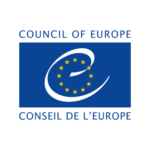Evaluation of participant inclusion levels within the EU Youth Dialogue
Year of production: 2023

Image by Gerd Altmann from Pixabay
The EUYD is a key youth participation mechanism at EU level aiming to bring youth voice to the EU policy making. It is operational in all EU-27 states, though the national name for the process does vary between countries. Its main element is the dialogue between young people, youth organisations and policy and decision makers, as well as experts, researchers and other relevant civil society actors. It serves as a forum for continuous joint reflection and consultation on the priorities, implementation and follow-up of European cooperation in the field of youth. It builds on the achievements of past dialogue processes (Structured Dialogue), with the aim of including more decision-makers and young people in the dialogue activities. Particular attention is given to the inclusion of young people with fewer opportunities in decision-making processes. Within this research the term ‘demographic inclusion’ is used to describe the extent that participants from minority groups are represented in the makeup of EUYD participants. An alternative term for this, used commonly in social research, is a representative sample. A representative sample is when a sample of participants from a larger group accurately represents the characteristics of a larger population. However, the term ‘representative’ is avoided within this evaluation because it risks confusion with the concept of democratic representation. Young representatives of democratic youth organisations such as National Youth Councils can be said to ‘democratically represent’ the young people in their country. Democratic representation arises from the democratic procedures of those organisations and not the social backgrounds of the representatives. This concept is also important to EUYD. It is necessary to clearly distinguish it from demographic inclusion and representation.






